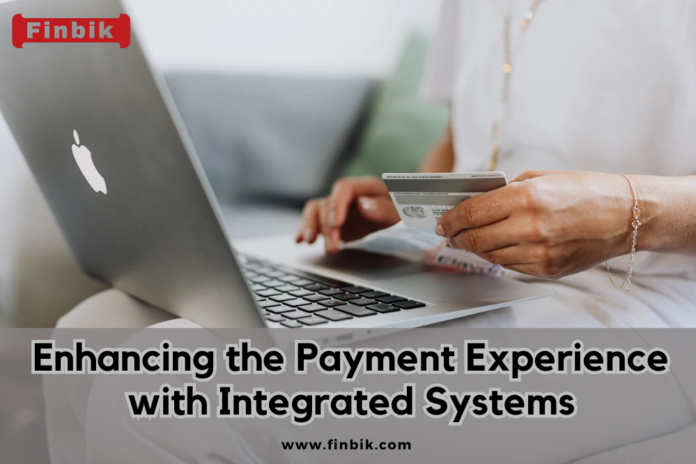In the dynamic world of online transactions, industries constantly look for opportunities to enhance their customers’ payment experience. Out of all the potential solutions out there, one that has stood out front as a driving force shaping how transactions take place and feels like it is in regards to integrating payment systems. This article focuses on the transformative character of integrated payment systems and illuminates their importance.
Importance of Integrated Payment System

Integrated payment systems are helpful units in simplifying the way that businesses handle their payments. These systems greatly enhance operational efficiency by automating invoicing, making payment reconciliation quick to deal with, and making the funds’ transfer process seamless. For brands, this importance stems from the possibility of improving security measures. Integrated payment systems are developed with strict security mechanisms that not only ensure the safety of sensitive customer information but also reduce the opportunity for fraudulent activities. This not only safeguards the reputation of the brand but also builds trust among customers, which is a prerequisite for any thriving business. The simplicity and ease of integrated payment systems that lead to a convenient payment journey leave the customer with a good feeling about the brand.
How Integrated Payment Systems Provide a Good Payment Experience?
● Swift and Seamless Transactions
Integrated payment systems excel in expediting transaction processes. The swiftness with which these systems process transactions reduces waiting times, leading to enhanced customer satisfaction. Businesses benefit from quicker cash flows, contributing to improved financial health.
● Diverse Payment Options
Integrated payment systems support a number of different payment types. These systems, from traditional credit cards to modern digital wallets, offer a wide array of choices that accommodate the needs and desires of customers with very diverse backgrounds. This flexibility allows businesses to meet their clients’ payment behaviour.
● Real-time Tracking and Notifications
Transparency is a crucial element of a good payment experience. Real-time tracking and instant notifications offered by integrated payment systems help customers stay updated on their payments. This is a proactive approach that adds additional satisfaction because customers are happy knowing their current financial matters.
Case Studies of Successful Implementation
Real-world examples of integrated payment systems serve as powerful testimonials of their effectiveness. Such industry leaders as PayPal and Stripe have managed to integrate these systems rather successfully, providing a full range of services from small firms to big companies. Some case scenarios of firms such as XYZ Corporation and ABC Enterprises also provide real-life benefits, including enhanced transaction efficiency and better financial management.
● XYZ Corporation
XYZ Corporation witnessed a remarkable 30% increase in transaction efficiency after implementing an integrated payment system. This not only streamlined their payment processes but also enhanced customer trust and loyalty.
● ABC Enterprises
ABC Enterprises, by adapting to dynamic market demands through an integrated payment system, experienced improvements in overall financial management. The system facilitated a more organised and efficient approach to handling financial transactions.
Key Features of an Integrated Payment System
● Flexibility
Flexibility is a hallmark of integrated payment systems. These systems can be tailored to meet the specific needs of businesses, irrespective of their size. Whether it’s a small e-commerce store or a large enterprise, the flexibility of these systems ensures they can adapt to varying transaction volumes and types.
● Compatibility
Ensuring compatibility with existing systems is crucial for a smooth integration process. Leading integrated payment systems seamlessly integrate with various platforms, ensuring that businesses can transition without disruptions. Compatibility is a vital factor in successful integration.
● Scalability
As businesses grow, so do their transaction volumes. Integrated payment systems are scalable and capable of handling increased workloads without compromising efficiency. This scalability ensures the longevity and relevance of the system as the business expands.
● Customisation
Every business has unique requirements, and integrated payment systems acknowledge this by allowing for customisation. Businesses can add specific features or functionalities that align with their business model and customer expectations, creating a tailor-made payment solution.
Challenges and Solutions in Implementing Integrated Payment Systems
● Overcoming Challenges in System Integration
Though there may be difficulties in merging payment systems, strategic planning and collaboration with experienced providers can effectively handle these challenges. Ensuring harmony with the existing infrastructure is crucial for a successful integration process.
● Addressing Concerns about Security
Maintaining security is a paramount consideration in the realm of financial transactions. To safeguard customer data, businesses should invest in solid encryption and authentication measures. Adhering to industry standards and regulations is an absolute necessity.
● Ensuring Adherence to Regulations
Complying with local and global regulations is essential for businesses employing integrated payment systems. Adherence guarantees that both the brand and its customers operate within a secure and legally compliant environment.
Future Trends in Integrated Payment Systems
● Blockchain
Blockchain technology is poised to enhance transparency and security in payment systems. Its decentralised nature holds the potential to revolutionise how financial transactions are conducted online.
● Artificial Intelligence
The integration of artificial intelligence in payment systems is expected to improve fraud detection and prevention. Additionally, AI can personalise payment experiences, catering to the individual preferences of users.
● Contactless Payments
The popularity of contactless and mobile payments is increasing. Integrated payment systems are expected to continue evolving by incorporating wearable devices, offering users additional and more convenient payment choices.
To sum up, the integration of payment systems transcends a simple technological enhancement; it signifies a strategic step towards offering a more secure and gratifying payment experience. Brands that adopt these systems position themselves as leaders in the industry, gaining a competitive advantage and nurturing enduring customer connections.
Articles You May Like

